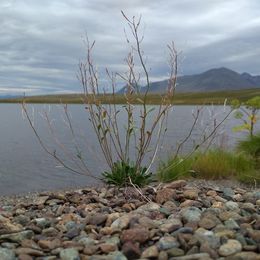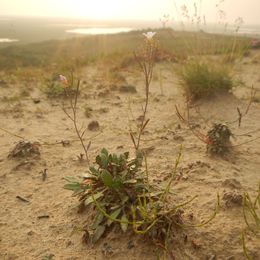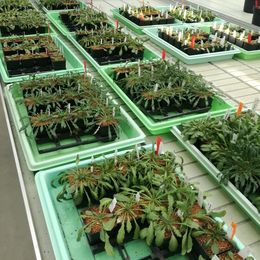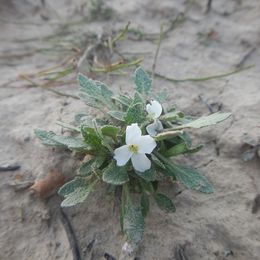Dr. Polina Novikova
Research focus
Polyploid organisms have more than two sets of chromosomes as a result of a whole-genome duplication or a whole-genome hybridization. Polyploidy is often associated with extreme environments, where it can be triggered by external stress and in case of a successful establishment, can provide an adaptive advantage in harsh conditions. At the same time, the establishment of polyploid populations includes cellular adaptation to another extreme condition — polyploidy itself. We study the interplay between adaptation and polyploidy to understand molecular mechanisms of adaptation to doubled genomes, genomic and organismal consequences of polyploidization, and its ecological importance.
The five most important publications
- Kolesnikova U, Scott AD, Van de Velde JD, Burns R, Tikhomirov NP, Pfordt U, Clarke AC, Yant L, Seregin AP, Vekemans X, Laurent S, Novikova PY (2023). “Transition to Self-Compatibility Associated with Dominant S-Allele in a Diploid Siberian Progenitor of Allotetraploid Arabidopsis kamchatica Revealed by Arabidopsis lyrata Genomes” bioRxiv. doi.org/10.1101/2022.06.24.497443. (accepted in MBE)
- Wlodzimierz P, Rabanal FA, Burns R, Naish M, Primetis E, Scott A, Mandáková T, Gorringe N, Tock AJ, Holland D, Fritschi K, Habring A, Lanz C, Patel C, Schlegel T, Collenberg M, Mielke M, Nordborg M, Roux F, Shirsekar G, Alonso-Blanco C, Lysak MA, Novikova PY, Bousios A, Weigel D and Henderson IR (2023) “Cycles of Satellite and Transposon Evolution in Arabidopsis Centromeres.” Nature, May. https://doi.org/10.1038/s41586-023-06062-z.
- Novikova PY, Kolesnikova UK, Scott AD. Ancestral self-compatibility facilitates the establishment of allopolyploids in Brassicaceae. Plant Reprod. (2023) Mar;36(1):125-138. doi: 10.1007/s00497-022-00451-6. Epub 2022 Oct 25. PMID: 36282331; PMCID: PMC9957919.
- Burns R, Mandáková T, Gunis J, Soto-Jiménez LM, Liu C, Lysak MA, Novikova PY§, and Nordborg N§. (2019). “Gradual Evolution of Allopolyploidy in Arabidopsis Suecica.” Nature Ecology & Evolution, https://doi.org/10.1038/s41559-021-01525-w.
- Novikova PY, Hohmann N, Nizhynska V, Tsuchimatsu T, Ali J, Muir G, Guggisberg A, Paape T, Schmid K, Fedorenko OM, Holm S, Sall T, Schlotterer C, Marhold K, Widmer A, Sese J, Shimizu KK, Weigel D, Kramer U, Koch MA, Nordborg M. (2016) “Sequencing of the genus Arabidopsis identifies a complex history of nonbifurcating speciation and abundant trans-specific polymorphism.” Nature Genetics, doi:10.1038/ng.3617
Dr. Polina Novikova

Department of Chromosome Biology
Max Planck Institute for Plant Breeding Research




